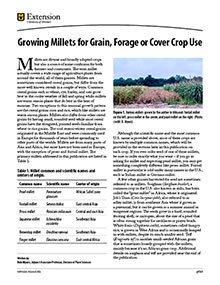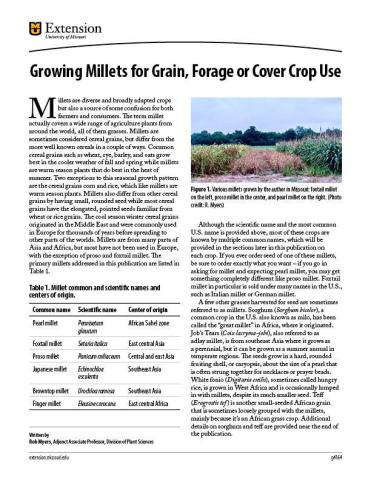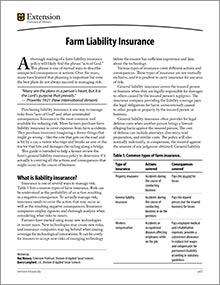

Farm Liability Insurance
New
Learn how to manage risk and protect your farm with liability insurance. Understand who is covered, what damages are covered and general liability insurance exclusions.
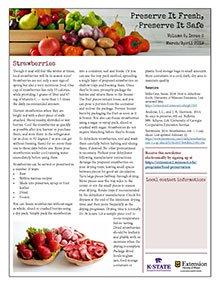
Preserve It Fresh, Preserve It Safe: 2019, No. 2 (March/April)
New
Learn how to choose, store, freeze, and dry strawberries to enjoy their flavor and nutrition beyond the harvest season.
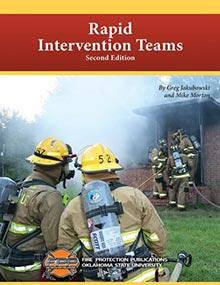
Rapid Intervention Teams, Second Edition Manual
New $61.97 to $72.90
This manual presents the purpose of a rapid intervention team (RIT) program and how to implement one in an emergency response organization. It serves as a guide to the regulations and standards that apply to RIT including information from NFPA 1407 related to training and operational concepts.
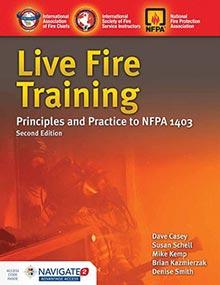
Live Fire Training Principles and Practice, Second Edition Manual
New $110
This manual provides a definitive guide on how to ensure safe and realistic live fire training for both students and instructors. It addresses all the requirements for NFPA 1403, Standard on Live Fire Training Evolutions, 2018 Edition.
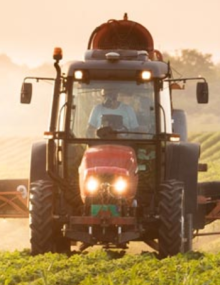
Pesticide Applicator Training Manuals: Ordering Information
Revised
Ordering information for pesticide applicator training manuals, including the core manual and various category-specific manuals.

Fire Service Hydraulics and Water Supply, Third Edition Manual
New $84.15 to $99
This manual covers the basics of water and water flow, theoretical and practical methods of determining water flow and pressure loss, types of pumps and fire apparatus used to move water, relay pumping operations, fire pump testing, and effectively supplying sprinkler and standpipe systems. It also discusses recent research on updating friction loss coefficients for the modern fire hose.
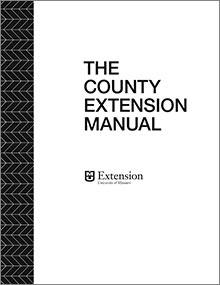
The County Extension Manual
Revised
Editor's note
This item is available for University of Missouri Extension internal orders or download only.
For more information, contact extpubs@missouri.edu
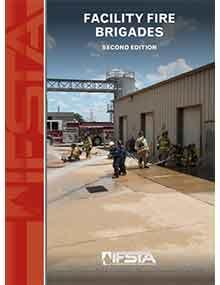
Facility Fire Brigades, 2nd Edition Manual E-book
New $80.33
The manual assists management and safety professionals in commercial and industrial occupancies with compliance to applicable laws and regulations regarding training and management of fire brigades. Trainees and instructors will find benefit in using the 144 skill sheets to meet the JPRs specified by NFPA 600, Standard on Facility Fire Brigades, (2015) and OSHA regulations in Title 29 of the Code of Federal Regulations, Part 1910.
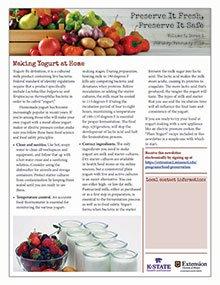
Preserve It Fresh, Preserve It Safe: 2019, No. 1 (January/February)
New
Step-by-step tips for homemade yogurt: sanitize tools, control temperatures, and use just milk plus starter for safe, satisfying results.
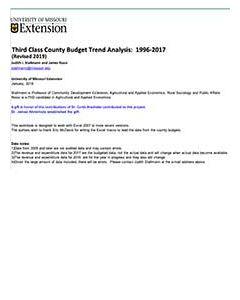
Missouri’s Third Class County Budget Trend Analysis
Revised
Use this workbook to analyze fiscal trends in Missouri counties as well as carry out studies on budget, fiscal trends, and performance to identify needed actions. Compare past performance to set standards to gauge them alongside each other as well.
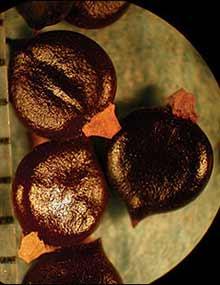
Missouri Weed Seeds, Page 37
Reviewed
Identify smartweed species like wild buckwheat and curly dock using images and seed details for accurate comparison.
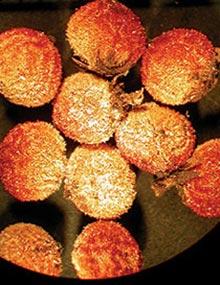
Missouri Weed Seeds, Page 05
Reviewed
In addition to several sumac species, poison ivy is a member of the Cashew family (Anacardiaceae) and is widespread throughout the state.
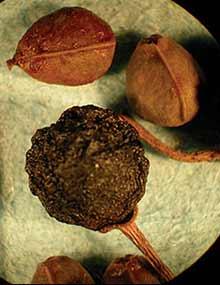
Missouri Weed Seeds, Page 40
Reviewed
Rhamnaceae (Buckthorn family) has three genera found in the state; Rhamnus spp. or buckthorn is the more common with three species.
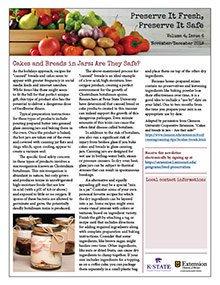
Preserve It Fresh, Preserve It Safe: 2018, No. 6 (November/December)
New
Tips for stress-free holiday food-prep and gifting: Gift dry cake and bread mixes layered in jars. Label home canned food gifts for safety. Prepare and freeze foods for dinner ahead of time. Learn more in this University of Missouri Extension newsletter.
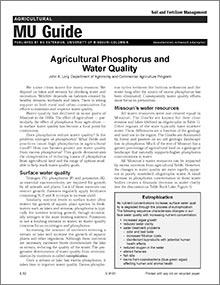
Agricultural Phosphorus and Water Quality
Reviewed
This guide demonstrates the complexities of reducing losses of phosphorus from agricultural land and the range of options available to help reach water quality goals.
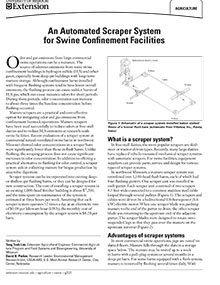
An Automated Scraper System for Swine Confinement Facilities
Reviewed
An automated scraper system reduces odor emissions in swine barns, lowers maintenance costs, and supports biogas production through efficient manure removal.
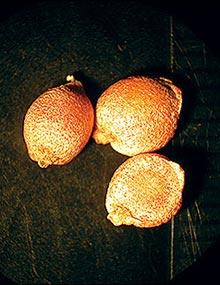
Missouri Weed Seeds, Page 08
Reviewed
The two most prevalent members of the arum family (Araceae) are jack-in-the-pulpit and the closely related green dragon, both found throughout the state.
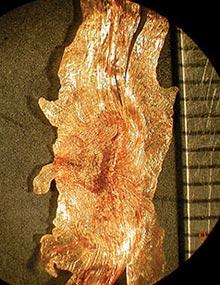
Missouri Weed Seeds, Page 11
Reviewed
Besides trumpetcreeper, there are few species of catalpa that are present in this family (Bignoniaceae) in Missouri.
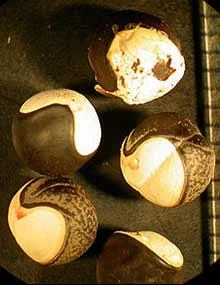
Missouri Weed Seeds, Page 43
Reviewed
Sapindaceae (Soapberry family) has only two genera present in the state and is not common, although there are about 140 members worldwide.
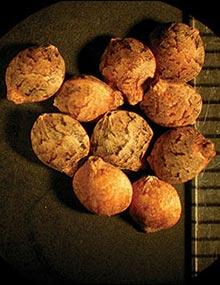
Missouri Weed Seeds, Page 14
Reviewed
Other than hops, Cannabaceae (Mulberry family) includes mulberry, Osage orange and hemp.
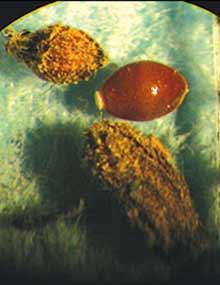
Missouri Weed Seeds, Page 46
Reviewed
Information about the Urticaceae (nettle) family, focusing on Laportea canadensis (wood nettle) and Parietaria pensylvanica (pellitory).
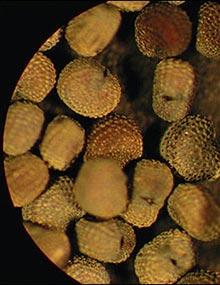
Missouri Weed Seeds, Page 17
Reviewed
At least 14 species of “chickweed” and several species of sleepy catchfly make up the majority of Caryophyllaceae (Pink family) in Missouri.
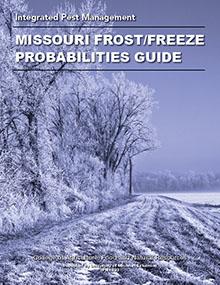
Missouri Frost/Freeze Probabilities Guide
Reviewed
Where in Missouri you live can make a big difference on when to expect your first or last frost. See this guide for probabilities based on past years.
